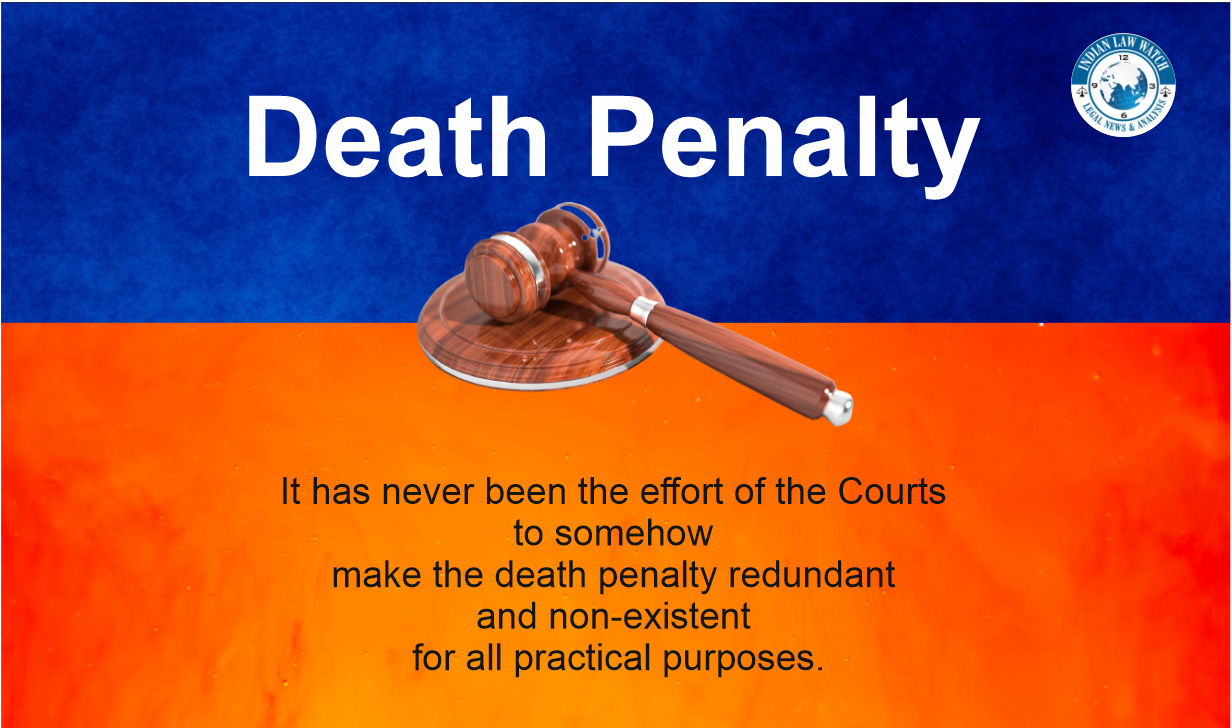

The Supreme Court in Manoj Pratap Singh v. State of Rajasthan, SLP (Crl.) No(s). 7899-7900 of 2015 while upholding the death sentence awarded to a man for the rape and murder of a seven-and-a-half-year-old mentally and physically challenged girl, observed that it has never been the effort of the Courts to somehow make the death penalty redundant and non-existent for all practical purposes.

In this case, the convict kidnapped the victim by luring her with confectionary items and then brutally raped the 7-year-old mentally and physically challenged girl, and eventually mercilessly killed the girl by causing various head injuries. Moreover, all these crimes were committed using a stolen motorcycle.
The convict, 28 years of age with having a family of wife, a daughter about 8 years of age and aged parents, was continuously involved in criminal activities even prior to this crime ranging from Section 3 of Prevention of Damage to Public Property Act, 1984, Section 379 IPC and even 307 IPC. His crimes did not stop even after the conviction, even while he was in Jail, apart from quarrelling with other inmates and earning 7 days’ punishment, he had been accused and convicted of the offence of yet another murder, this time of a co-inmate.
The appellant requested to get the death penalty set aside based on the fact that he has a minor daughter and an aged father, and the crime was committed when he was only 28 years of age. He also argued that his overall conduct in prison is without any blemish except the allegation of his involvement in a case of murder.

The Court responded negatively and stated that “We could only wonder what more of criminal activity would qualify as a blemish, if not the involvement and conviction in a case of murder of a fellow jail inmate! This is apart from the other 7 days’ punishment earned by the appellant for quarreling with another jail inmate.”
The court also rejected the appellant’s suggestion concerning the psychological evaluation report and further refused to proceed with the theory of residual doubt.
The court observed that in the present case, where the appellant is found to be indulging incessantly in criminal activities both before and after the crime in question; calling for any further report of the likelihood of reformation and rehabilitation of the appellant could be proposed only if the judicial process is determined to annul the death sentence altogether, by finding one way or the other to avoid the same in every case.
“Such an approach would be counter-productive to the entire system of maintenance of order in the society; and could be countenanced only if we would be inclined to think that whatever be the society’s cry for justice, the statutory provision of death sentence should itself be given its interment or burial.”
The court, therefore, concluded that read as a whole, the fact-sheet concerning the appellant leads only the logical deduction that there is no possibility that he would not relapse again in this crime if given any indulgence.
The bench also observed that
“The quest for justice in such cases, with death sentence being awarded and maintained only in extreme cases, does not mean that the matter would be approached and examined in the manner that death sentence has to be avoided, even if the matter indeed calls for such a punishment.”





